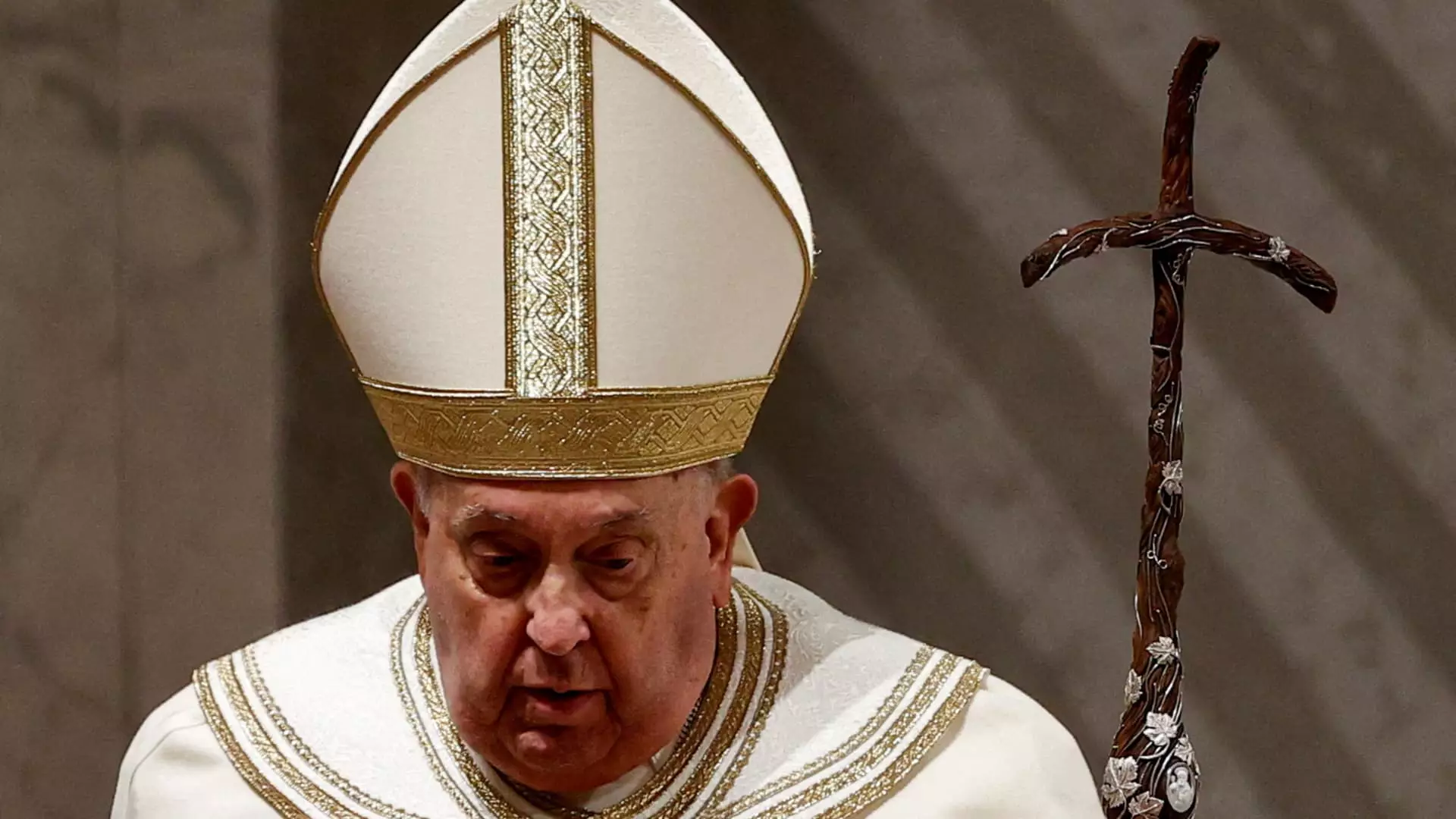Pope Francis is currently facing a significant health crisis, having been diagnosed with double pneumonia, which is a serious and complex condition affecting both of his lungs. Admitted to Rome’s Gemelli Hospital on February 14, the 88-year-old pontiff began experiencing respiratory difficulties several days prior to his hospitalization. This situation escalated when doctors confirmed that he required supplemental oxygen and underwent blood transfusions, marking a critical point in his care. The Vatican provided an update that indicated a night of tranquility, yet the absence of detailed information raises questions about his ongoing health status.
Double pneumonia can lead to severe complications, especially in older individuals or those with compromised lung function. This infection can cause inflammation and scarring in the lungs, severely impacting breathing capabilities. The Vatican has described the pope’s case as “complex,” attributed to multiple microorganisms. Such complexities make treatment more challenging and may lengthen recovery times. The pontiff has a history affecting his lung health; he experienced pleurisy in his youth and has previously undergone lung surgery, making him particularly vulnerable to respiratory infections.
The situation reflects not just the prevalence of illness in the elderly, but also the specific vulnerabilities that come from a life dedicated to public service amidst the stress and responsibilities tied to being a pope. Reports indicate that Francis has had multiple health issues over the past two years, emphasizing the toll his papacy has taken on his physical condition. His medical team highlighted a respiratory crisis resembling asthma, necessitating high-flow oxygen treatment and pointing to the broader challenges faced by aging leaders.
Health experts suggest that the pope’s age and frailty compound the risks associated with his current health crisis. The potential spread of the lung infection to the bloodstream presents a serious risk of sepsis, an often-fatal condition. Dr. Sergio Alfieri, from the Gemelli medical team, highlighted that overcoming sepsis would be particularly challenging given the pope’s health background. As the world watches closely, the current health crisis for Pope Francis underscores the fragile nature of life, especially for global leaders whose responsibilities may sometimes overshadow their personal well-being.
As Pope Francis recuperates, there is a growing conversation about his legacy and the challenges he has faced throughout his papacy. His commitment to social issues, interfaith dialogue, and pastoral care has shaped his leadership style, yet it is imperative to acknowledge the toll these duties may impose on one’s health. It is an unsettling reminder that even spiritual leaders are not exempt from the vulnerabilities of human life. In these critical moments of his health journey, prayers and hopes for recovery resonate among millions, calling into question the future directions of his papacy and the ethos it promotes. As news unfolds, the world holds its breath, rooting for the pope’s recovery and continued guidance.

Leave a Reply